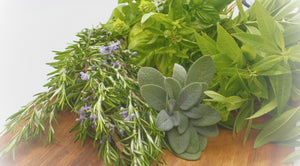Growing Practices


The Growers Exchange has always focused on minimally invasive biological pest and disease controls. In our state of the art greenhouse, we solve problems by minimizing risks to people and the environment through an Integrated Pest Management (IPM) program.
What is Integrated Pest Management?
IPM is an ecosystem-based strategy that focuses on long-term prevention of pest damage through a combination of techniques:
Preventive cultural practices - Maintaining healthy crops is the first line of defense! Starting the season off with a sanitized, screened in greenhouse ensures our plants are off to a fresh start. Beneficial fungi and bacteria are added to our potting media which reduces the need for fungicides and promotes a healthy root system.
Monitoring - Regular observation is incredibly important. Our growers scout the plants daily to monitor the health of the crop and identify any pest or disease that might have worked its way into the greenhouse.
Biological Controls - We incorporate nematodes, beneficial mites, and other organisms into our IPM Program to prevent pest populations from multiplying. These microscopic creatures prevent pests from completing their life cycle and causing damage to root systems a foliage. Only if necessary - biological chemical controls that are OMRI (Organic Material Review Institute) listed and are not harmful to any of our beneficial insects are applied to the plants to eliminate the problem. Many of the pesticides we use in the greenhouse are derived from plants or naturally occurring substances - like Horticultural Oil and Bacillus thuringiensis var. kurstaki (NOT used on any crop during summer/early fall when butterflies are actively reproducing) and are not toxic to our employees, our customers or the environment.





